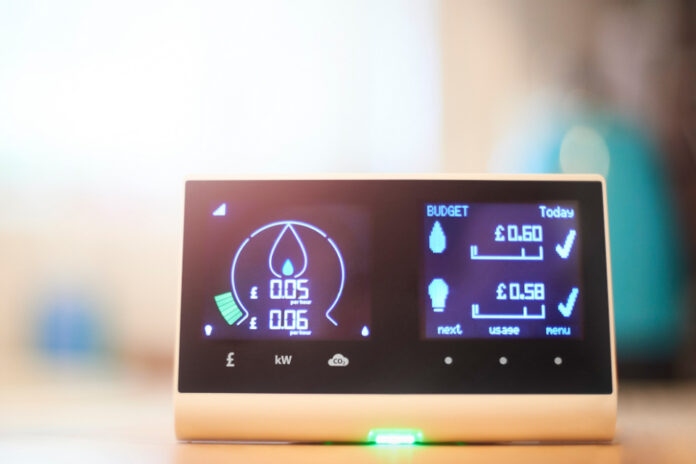Nearly three million smart meters are not working due to technical issues according to the Department for Energy Security and Net Zero. These errors can place customers out of pocket and with money tight during the cost of living crisis every penny counts. Therefore what rights do customers have with smart meter installation and claiming compensation if they have been overcharged?
Lesly Magar, Legal Adviser at DAS Law dives into the detail and explores how customers can navigate this complex and bureaucratic problem.
Can you deny the installation of a smart meter?
As part of the Government’s net zero commitment, the Government has established a four-year smart metering Targets Framework. Starting in 2022, the Government has set targets for energy suppliers across England, Scotland, and Wales to provide smart meters to all household and small businesses by the end of 2025. The initial rollout began in 2016 with the goal of smart meters being installed across the country by the end of 2020. While this was further extended to 2021 due to Covid-19 – the Government has initiated their plans of continuing the rollout until 2025.
Energy suppliers are therefore required to take all reasonable steps to install smart meters to their consumers during the rollout. Consumers on the other hand have the right to deny the installation of a smart meter as they are not legally required to have one.
However, where a traditional meter is deemed unsafe or faulty, and the suppliers only remedy is a replacement with a smart meter, consumers may be left with no other option but to accept a smart meter. This is currently the reality for some consumers due to the reduction in the stock of traditional meters.
The Government has also noted that a consumer right to refuse the installation of a smart meter may be removed in very specific circumstances, and if justified. Further consideration and consultation are yet to be undertaken but an example provided by the Government so far states that where energy theft has taken place, consumer choice may be removed.
Can I refuse an engineer entry to my home?
Generally, if a consumer has been in contact with their energy supplier to arrange a date and time for an installation appointment, consumers will have to let the engineer into their property for the installation to be carried out. If an engineer turns up unexpectedly to install a smart meter, consumers have the right to refuse their entry into their home.
The Government has also put in place a Consolidated Metering Code of Practice for smart meter installations to protect consumers. The Code of Practice states that no sales are permitted during the installation visit, energy efficiency advice must be provided to consumers as part of the visit, and permission must be given in advance if the engineer intends to talk about their own additional products and services.
Can you refuse a smart meter installation outside of my home?
Permission must be obtained from consumers before a smart meter is installed in their home. Where a smart meter may need to be fitted outside a consumers home, away from where their old meters were, installers must ask consumers first before taking any action. Consumers therefore have the right to refuse a smart meter installation outside of their home.
If you already have a smart meter installed, can you remove it?
Consumers that want their smart meter removed should contact their energy suppliers and should not take any actions to remove the smart meter themselves. Consumers should be mindful that their suppliers may charge them for the removal of the smart meter due to the cost implications that suppliers face themselves when installing and removing meters.
How can you challenge a smart-meter bill that you believe is overcharging you?
If a consumer believes that their bill is incorrect and they have been overcharged, they should firstly contact their energy supplier. Where informal complaints to the supplier have not resolved the issue, consumers should use their suppliers formal complaints process to escalate the matter. Suppliers then have up to eight weeks to resolve the issue.
If after eight weeks energy suppliers are unable to resolve the issue, or consumers are not satisfied with their suppliers’ response – consumers can register the dispute with the Energy Ombudsman. Suppliers may also provide their consumers with a deadlock letter giving them the opportunity to contact the Ombudsman prior to the expiry of the eight weeks.
If you have been overcharged for a bill, can you claim compensation?
The Energy Ombudsman has the authority to require energy suppliers to pay up a financial award of up to £10,000 to acknowledge the difficulties encountered by the consumer. To authorise this, the Ombudsman will be looking to establish whether the suppliers have made a mistake or treated their consumers unfairly.
Alongside compensations, the Energy Ombudsman can also require the suppliers to provide an apology, and a practical solution. The proposed remedy by the Ombudsman to the suppliers must be implemented within 28 days of the decision being made.
Alternatively, consumers may take their energy suppliers to court to get their money back if they believe that they have been overcharged for a bill and they are not satisfied with the suppliers and the Ombudsman’s decision.
Disclaimer: This information is for general guidance regarding rights and responsibilities and is not formal legal advice as no lawyer-client relationship has been created.
Help keep news FREE for our readers
Supporting your local community newspaper/online news outlet is crucial now more than ever. If you believe in independent journalism, then consider making a valuable contribution by making a one-time or monthly donation. We operate in rural areas where providing unbiased news can be challenging. Read More About Supporting The West Wales Chronicle



























